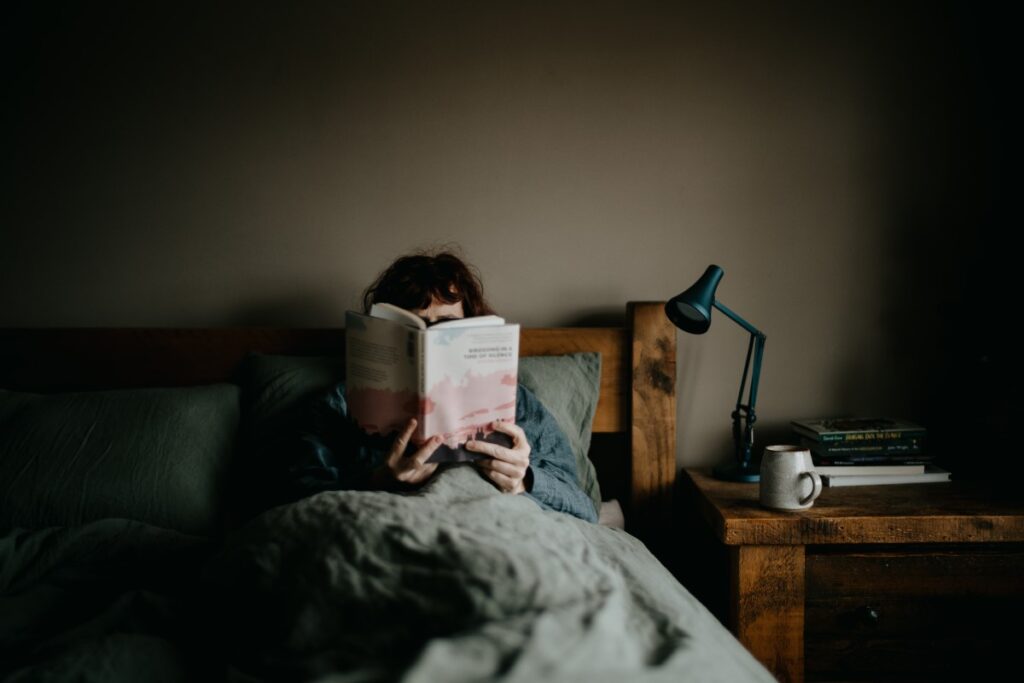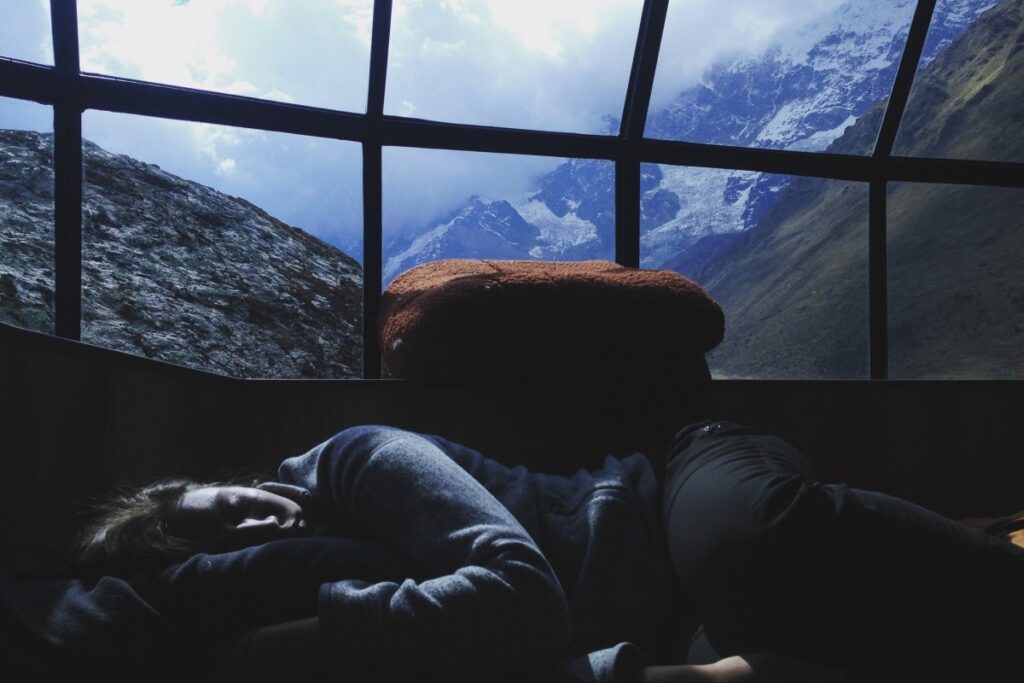We dedicate approximately 1/3 of our lives for sleeping. Therefore, it is undoubtedly very important for our bodies to have a good rest. Even so, living fast, we tend to neglect this aspect. So how does sleep deprivation affect our health? What to do to improve sleep hygiene? Let’s see what scientists say about it.
Is sleep deprivation dangerous?
Although, due to many limitations, it’s hard to perform a long-term studies upon sleep duration, there is growing evidence in literature, saying that insufficient rest may lead to health problems and increase the risk of death. The authors of one systematic review and meta-analysis concluded that short sleepers have 12% greater risk of all-cause mortality (commonly < 7 h per night, often < 5 h per night)1.
Even though sleep deprivation seems to be more common phenomenon, what’s interesting, the same reasearch says that long sleepers have 30% greater risk of mortality (commonly > 9 h per night).
In another study, supporting the thesis that sleep deprivation might be dangerous, the authors studied the corelation between sleep duration and telomeres length. Telomeres take active part in cells division. Longer telomeres = longer lifespan. In the research, the scientists measured that telomeres in men were 6% shorter in sleep-deprived group (<5h/night), comparing with those who slept more than 7h/night. What’s interesting, in case of women they found no difference2. Scientists claim that women’s endocrine system might be more adaptable to disruptions in natural biological clock. This of course doesn’t mean that ladies need less sleep than men.
More research is needed to unambiguously answer the question of how dangerous sleep deprivation is. But these 2 listed above should be a good basis for the fact that it is not worth saving time at the expense of sleep.
How much sleep do we need then?
There is no exact evidence on how long we should sleep. However, the estimations seem to be precise enough. Experts state that 7 to 9 hours of sleep is the optimal range for adults. During sleep we go through 3 NREM phases and 1 REM. The full cycle lasts around 90 to 110min., and to feel rested we should go through 4 to 6 cycles. Of course, depending on the occupation, physical activity etc. the sleep demand may differ. Nevertheless, a long enough rest should be a priority.

Sleep demand also depends on our age. During the puberty period, the body needs time to grow, and it’s happening exactly during sleep. For this reason, to not disrupt the process, children should sleep particularly long. According to the health protection agency CDC, here is the sleep time needed, depending on the age:
Age | Time |
0–3 months | 14–17h |
4–12 months | 12–16h |
1–2 years | 11–14h |
3–5 years | 10–13h |
6–12 years | 9–12h |
13–18 years | 8–10h |
18–60 years | 7+h |
61–64 years | 7-9h |
65+ | 7-8h |
Sleep and congnitive performance
What I also found interesting, is the fact that sleep is a kind of ‘brainwashing’. Literally – during sleep, the toxic protein, called beta-amyloid is removed from the brain. Therefore it’s a natural detoxification of the organism. By the way, this waste product is associated with Alzhimer disease. Thus, insufficient sleep have also impact on the cognitive decline.
But insufficient doesn’t only refer to the duration, but also to the quality. It turns out that the toxins in our brain are removed during deep sleep phases, so it’s crucial to take care of undisturbed sleep. I touch on this topic in the further part of this article.
Sleep and muscle growth
During the deep sleep phase (NREM) the body stays in the anabolic window – the stage in which growth hormone, IGF-1, and testosterone are produced. This favors the tissue repairment and therefore muscle growth. That’s why it’s crucial to focus on proper recovery if we want to build muscle mass. The training is only a stimulus, but the real growth process occurs during sleep3.
Additionally, regarding the tissue repairment, during an infection or period of excessive physical activity, we should respect the rest time even more. Eventually, the organism is capable of self-healing, and the best catalyst of this phenomenon is nothing else than sleep.
Sleep and fat loss
Okay, we know that we need to sleep well enough to grow. What about getting lean? In one study, 10 overweighted adults were divided into 2 groups. For two weeks they remained on the same calory deficit, but the 1st group was sleep-deprived and slept 5,5h/day. The 2nd group was sleeping 8,5h/day. The result is insane – the 2nd group burned as much as 55% more body fat and maintained 60% more fat free body mass4.
So if we aim to lose some kilograms, diet might be way less efficient if we don’t get enough sleep. Therefore, what to do in order to sleep well?
What are the best sleeping conditions?
As I mentioned, more than sleep duration the important is its quality. By adjusting the conditions in the bedroom, we can easily improve the sleep quality, which will ultimately positively affect our daily energy level and general health.
The human body is designed to be synchronized with day-night time. Therefore, keeping the bedroom as dark as possible for the nighttime is the best idea. The best is to get rid of all the sources of light, even diodes etc. It will help us to fall into the deeper sleep.
As humans, we like comfortable conditions, but, unfortunately, they usually don’t serve our health. It turns out that too high ambient temperature can disturb the deep sleep. According to the English professor and scientist, Matthew Walker, our brain and body temperature needs to drop down around 1°C before we fall asleep, and then to stay asleep. Therefore, he recommends keeping the bedroom temperature slightly over 18°C. Of course, fresh air can only help us to create perfect sleeping conditions. For this reason, we should consider opening the windows for the night or at least for a few minutes before sleeping.
Habits that improve sleep quality

- Avoid blue light 30-60min before bedtime
The eye retina is responsible for receiving light impulses that are furhter sent to the brain to signal if melatonin (hormone responsible for circadian rythm regulation) should be secreted. Blue light surpresses release of melatonin. To avoid it, I suggest to get familiar with apps like f.lux (laptops) and Twilight (android) that automatically decrease the screen’s blue light, depending on the time of the day.
- Avoid dopamine spikes close to sleep
Everyghing that the brain perceives to be exciting, triggers dopamine release which promotes the state of wakefullness. Therefore, watching tv, playing video games or scrolling social media are the worst things to do right before sleep.
- Reduce caffein few hour before bed
Caffein works antagonistically to adenosine receptors that are responsible for regulating sleep homeostasis, which in turn makes us feel more awaked. According to the American neuriscientist, Andrew Huberman, it’s very personal how far from sleeping you should avoid caffeine. Some people are so sensitive to it that even 1 morning coffee can disturb their sleep. I personally try to avoid caffein at least 5h before bed.
- Be regular
Referring to the biological clock, going to sleep and waking up at the same time everyday is the healthiest for our organisms. This helps to regulate balance in melatonine and cortisol secretion. I mentioned already about the melatonine, the cortisol instead is released mostly in the morning, to awake us. Therefore, regularity can help both, falling asleep and waking up.
- Create a healthy routine
Matthew Walker explained it in one of the TED’s episodes. The point is that the brain loves routines. Therefore, if it will start to associate the bed with staying awaked, it will be hard to fall asleep and maintain a good sleep. So, instead of electronics in the bed, grab a good book. And for those who have partners, having sex or a little goodnight conversation also promote better sleep.
Conclusions
Of course, it’s impossible to cover all the interesting aspects of sleep in one article. And even though quite a lot of science appeared here, I hope that I was able to highlight the general essence of sleep. I am also sure that scientists will provide us more and more fascinating news regarding this topic. Eventually, sleep takes 1/3 of our lives for a reason, so let’s respect this time and do what we can to use it efficiently. There’s nothing left to add, than wishing you a good night!

Marvelous article!
Thanks!
Pingback: 5 pillars of building muscle mass - PUMPING HEALTH